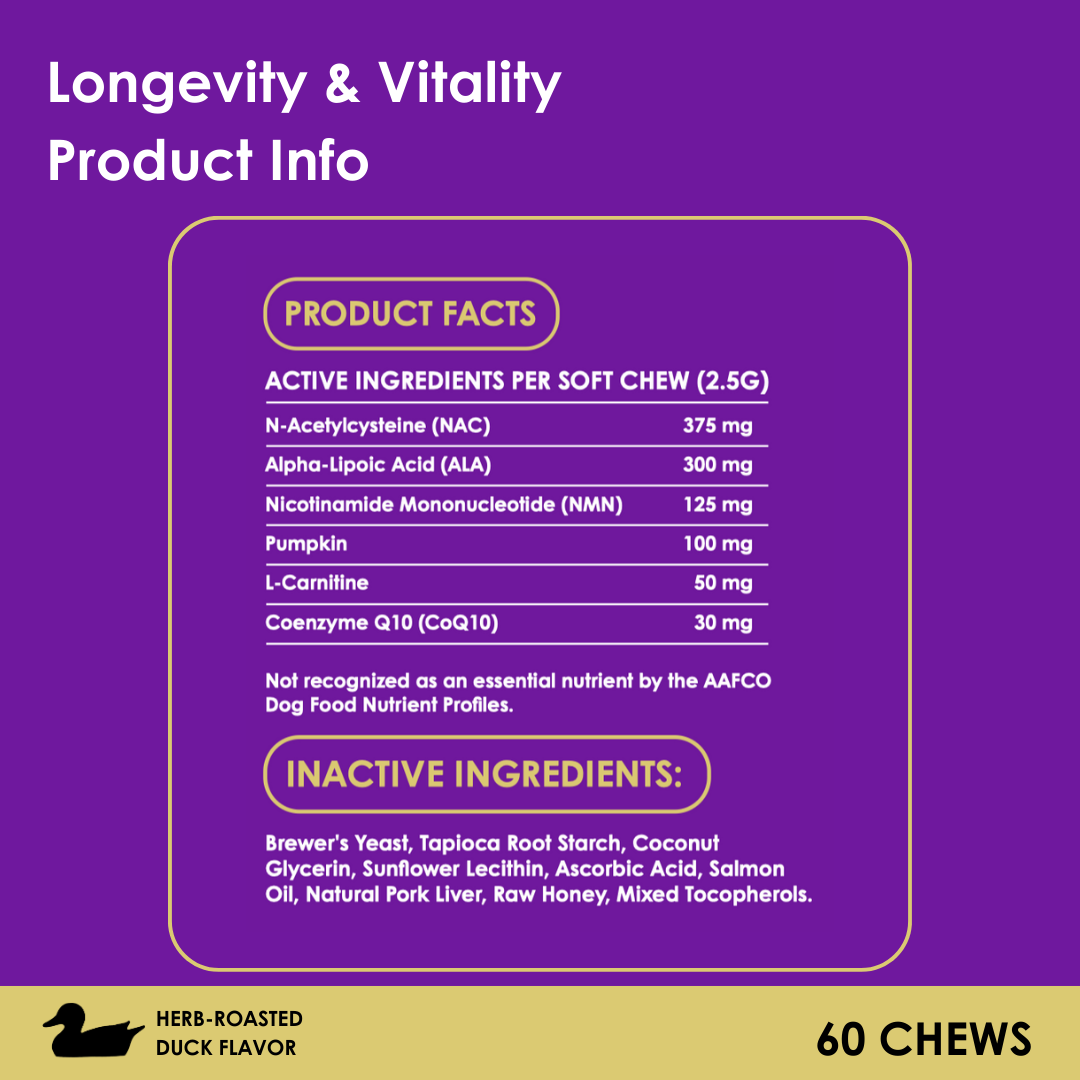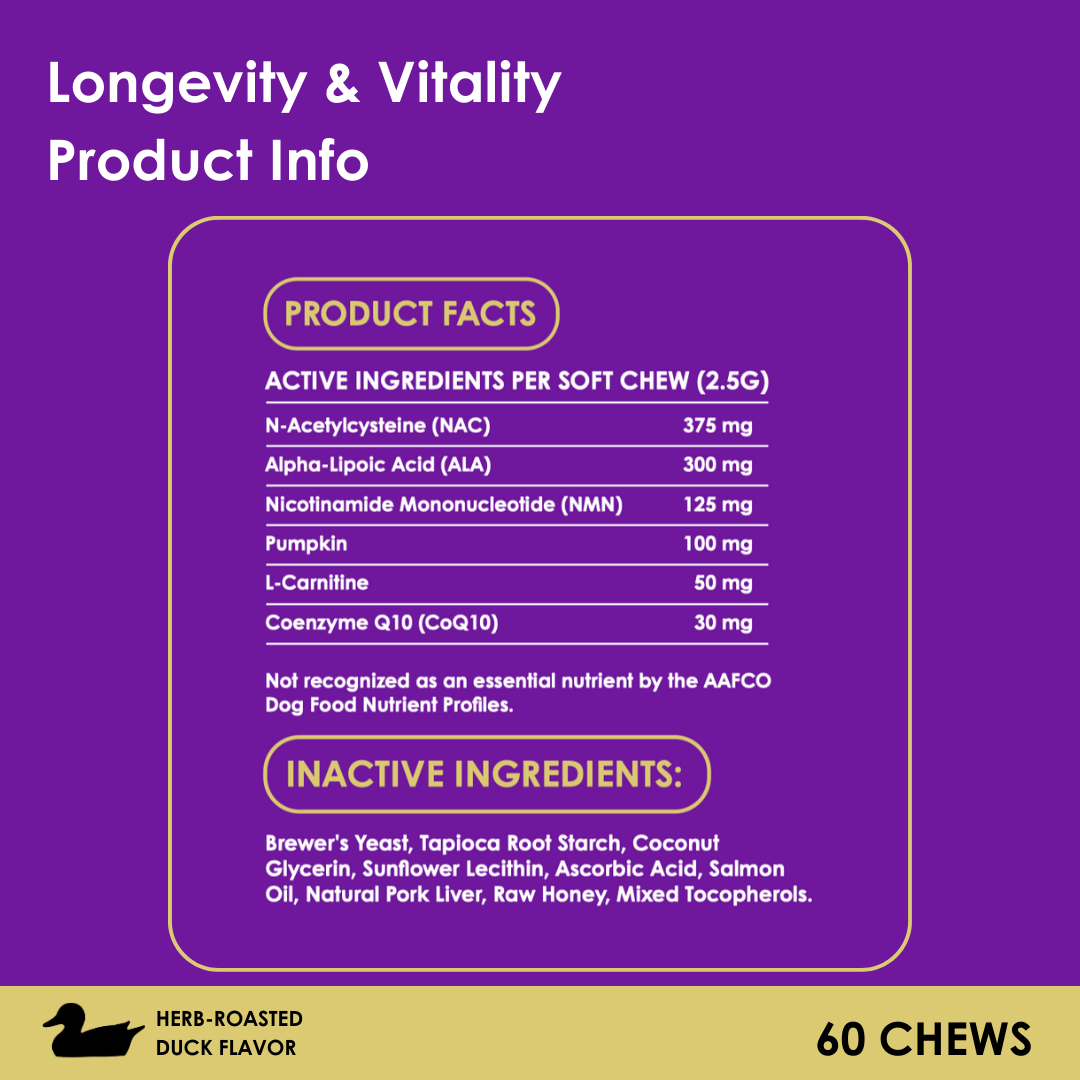Genetic Research Initiative to Unlock Canine Longevity
A groundbreaking international genetic research initiative led by the DoGA Consortium is shedding new light on the genetic makeup of dogs, opening doors to improved health outcomes and potentially longer lives for our beloved canine companions. The creation of an extensive canine promoter and gene expression atlas offers a transformative resource for understanding hereditary diseases and developing innovative treatments for both dogs and humans. Let’s dive into this remarkable initiative and what it could mean for our dogs' longevity:
What Is the DoGA Gene Atlas?
The DoGA (Dog Genome Atlas) project is a global effort involving experts in genomics, veterinary medicine, and computational biology. This initiative has resulted in a comprehensive database that maps gene expression across over 100 different canine tissues. Using cutting-edge RNA sequencing technology, researchers collected more than 5,000 samples from a wide variety of dog breeds and wolves, creating an unparalleled resource for studying genetic function and disease.
The atlas provides detailed information about:
- Gene Activity: Which genes are active in different tissues and at what times.
- Promoter Structures: How genes are regulated in various biological processes.
- Disease Associations: Links between genetic factors and health conditions like cancer, epilepsy, and psychiatric disorders.
Implications for Canine Health and Longevity
Understanding Hereditary Diseases
The DoGA atlas enables researchers to identify genetic factors associated with hereditary diseases, such as:
- Cancer: The leading cause of death in many dog breeds, including golden retrievers.
- Epilepsy: A neurological disorder that affects many breeds and is often resistant to treatment.
- Behavioral and Psychiatric Disorders: Conditions that can affect a dog’s quality of life and overall well-being.
By understanding the genes involved, scientists can work toward targeted interventions, early detection, and tailored treatments, potentially extending the healthy years of dogs' lives.
Improved Disease Modeling
Dogs are increasingly used as models for studying human diseases due to their genetic similarities with humans and their unique breed structures. The DoGA atlas enhances the use of dogs in:
- Comparative Medicine: Studying gene regulation in dogs to uncover parallels in human diseases.
- Embryonic Development: Exploring genetic changes during development, which could inform both veterinary and human medicine.
These advancements may lead to shared breakthroughs, benefiting both dogs and humans by tackling diseases at their genetic roots.
Insights into Behavior and Aging
The database also provides opportunities to study genes related to behavioral traits and aging processes. For example:
- Behavioral Genetics: Identifying genes that influence anxiety or aggression, allowing for improved training and treatment.
- Aging-Related Genes: Understanding the genetic mechanisms behind aging in dogs, which could inform strategies to delay the onset of age-related diseases and enhance longevity.
The Role of Breed-Specific Genetics in Longevity
Dog breeds have unique genetic structures due to selective breeding, which makes them ideal for studying hereditary traits. The DoGA atlas leverages this diversity to:
- Identify breed-specific risks for diseases.
- Develop tailored healthcare strategies for breeds prone to specific conditions, such as hip dysplasia in large breeds or cardiac issues in small breeds.
- Explore the genetic history of breeds, revealing how inherited traits may impact health and lifespan.
Future Applications: What’s Next for Longevity Research?
The DoGA atlas is an open-access resource, inviting researchers worldwide to use its data for innovative studies. Key future applications include:
- Personalized Medicine for Dogs: Tailoring treatments based on an individual dog’s genetic profile, from choosing the best diet to prescribing medications that align with their unique genetic makeup.
- Targeted Therapies: Using gene-editing technologies like CRISPR to address hereditary diseases directly at the genetic level.
- Cancer Research: Investigating genetic markers that predict cancer susceptibility and developing preemptive measures to mitigate risks.
How This Benefits Dog Owners
For dog parents, this initiative represents hope for a future where:
- Routine genetic screenings identify risks early, allowing for preventive care.
- Advances in veterinary medicine provide more effective treatments for common diseases.
- A deeper understanding of canine genetics leads to longer, healthier lives for their furry companions.
Conclusion
The International DoGA Consortium's gene research initiative is a monumental step forward in canine genetics, offering unprecedented insights into the genes that shape health, behavior, and longevity. By mapping gene activity across various tissues, this project not only paves the way for breakthroughs in treating hereditary diseases but also helps ensure that future generations of dogs live longer and healthier lives. As research progresses, the DoGA atlas has the potential to transform both veterinary and human medicine, deepening our bond with man’s best friend and extending their precious time by our sides.
























